MIHAI & MICHAEL
WHO ARE THEY
Mihai Popescu and Michael Madelaire are two neighbours living in the Sluseholmen area in Copenhagen - from Romania and Denmark respectively. They started a plogging initiative in Sluseholmen, where they bring together local residents who want to take action against waste pollution in their local harbour.
A true plog-story
“It wasn't until I met Mihai, my upstairs neighbour, that I began collecting trash. I was sitting outside eating breakfast as I saw him running around with a trash bag over his shoulder. We got to talking and he introduced me to the concept of plogging”, Michael tells us. Mihai then introduced Michael to the different levels of plogging:
Level 1 is the "classic plogging" on the ground by running;
Level 2 is by swimming and picking up trash that floats;
Level 3 is done by diving with a snorkel and hunting for trash at the bottom of the canals
Michael continues, “Then I decided to try and collect trash on my next trip and told Mihai about the success. I was already at level 3!”.
RECONNECTING WITH OUR TRASH
Through the plogging initiative, Mihai and Michael, want to highlight that litter is everywhere, and that we just need to pay attention and think more systemically about how waste is produced and where it ends up. “Unfortunately, it is hard to relate to things that are physically far away from us...People buy expensive apartments in this neighborhood with access to the water, but they seldomly look at what is right below them. A canal filled with beer cans, napkins, plastic, plates, bikes… and wildlife.”
For Mihai and Michael, in the coastal city of Copenhagen, we have the ultimate responsibility to take care of our coastal environment - as a “first line of defense” against polluting our oceans. As Mihai puts it, “if not us, then who?”
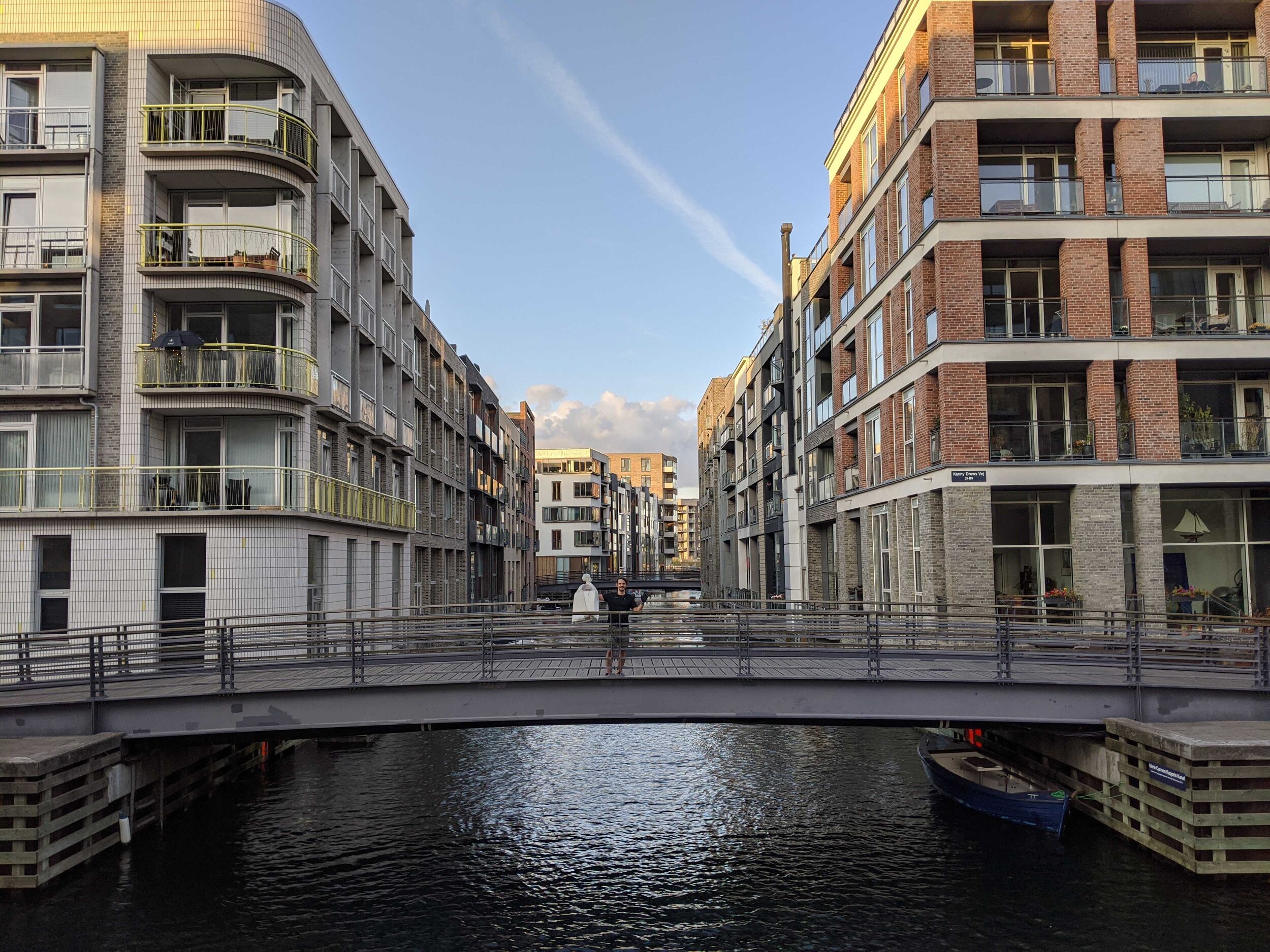
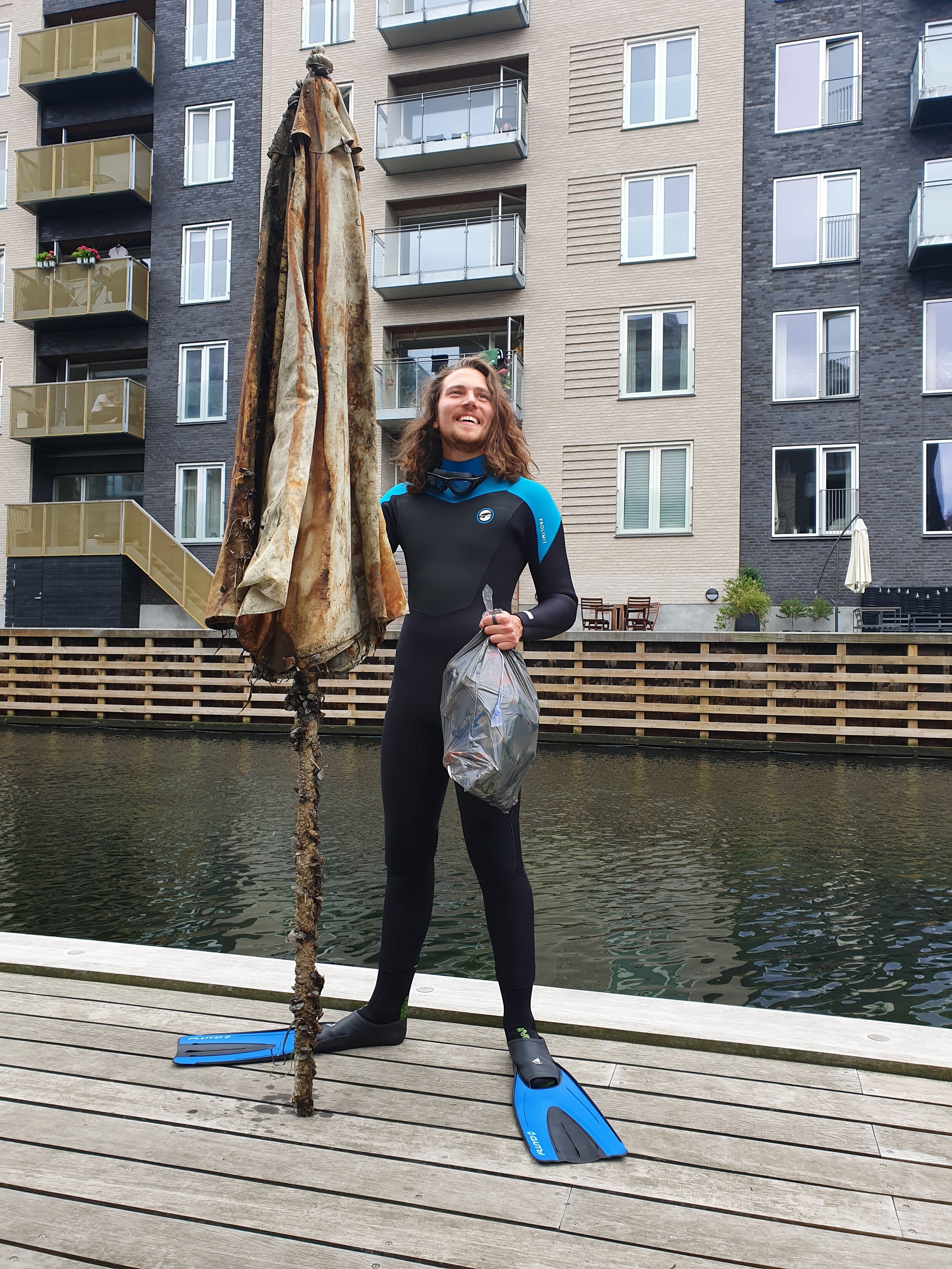
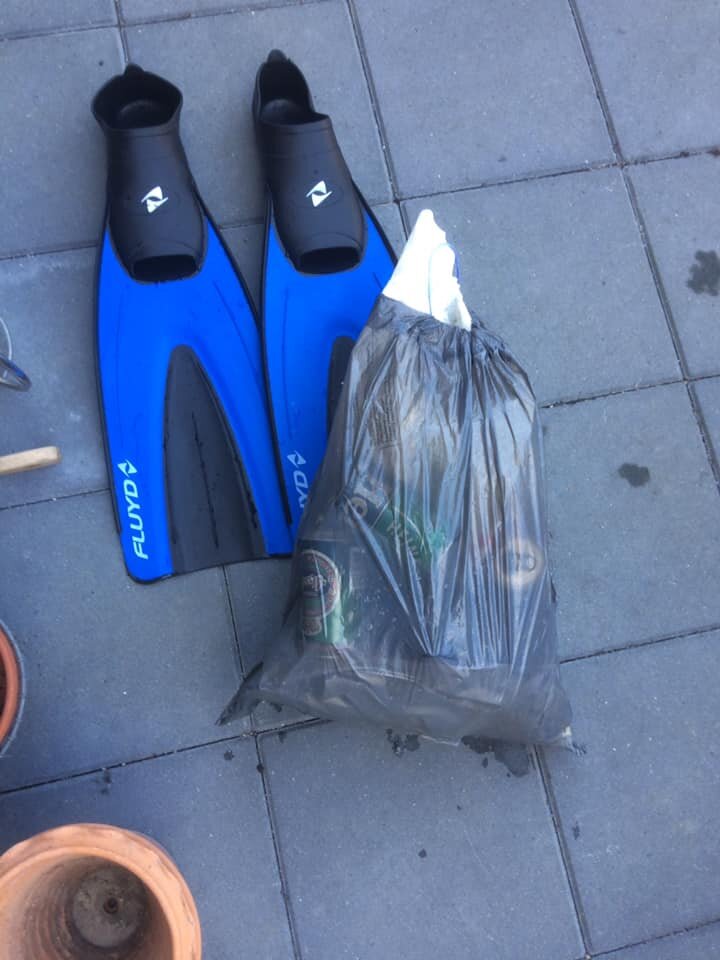
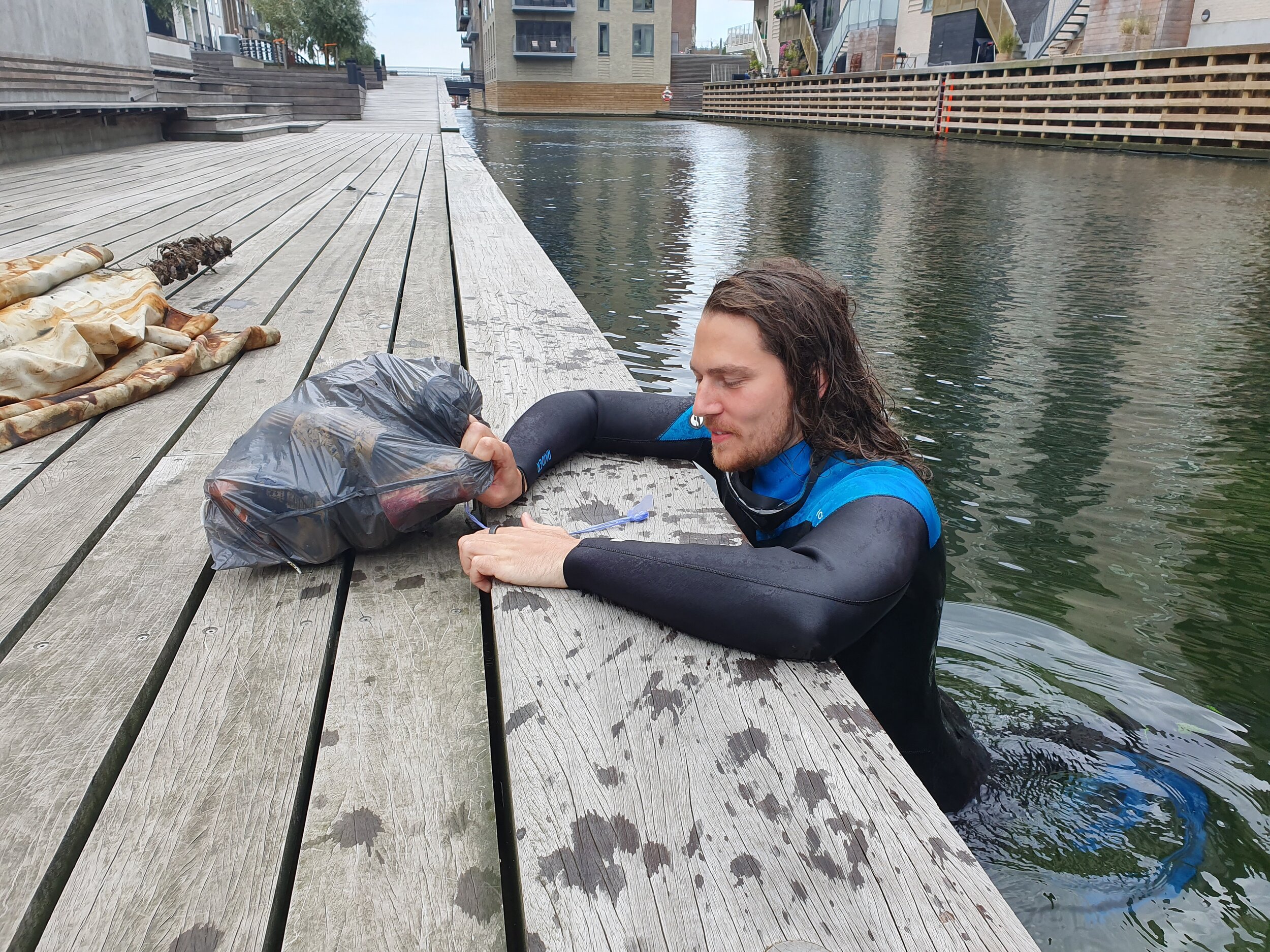
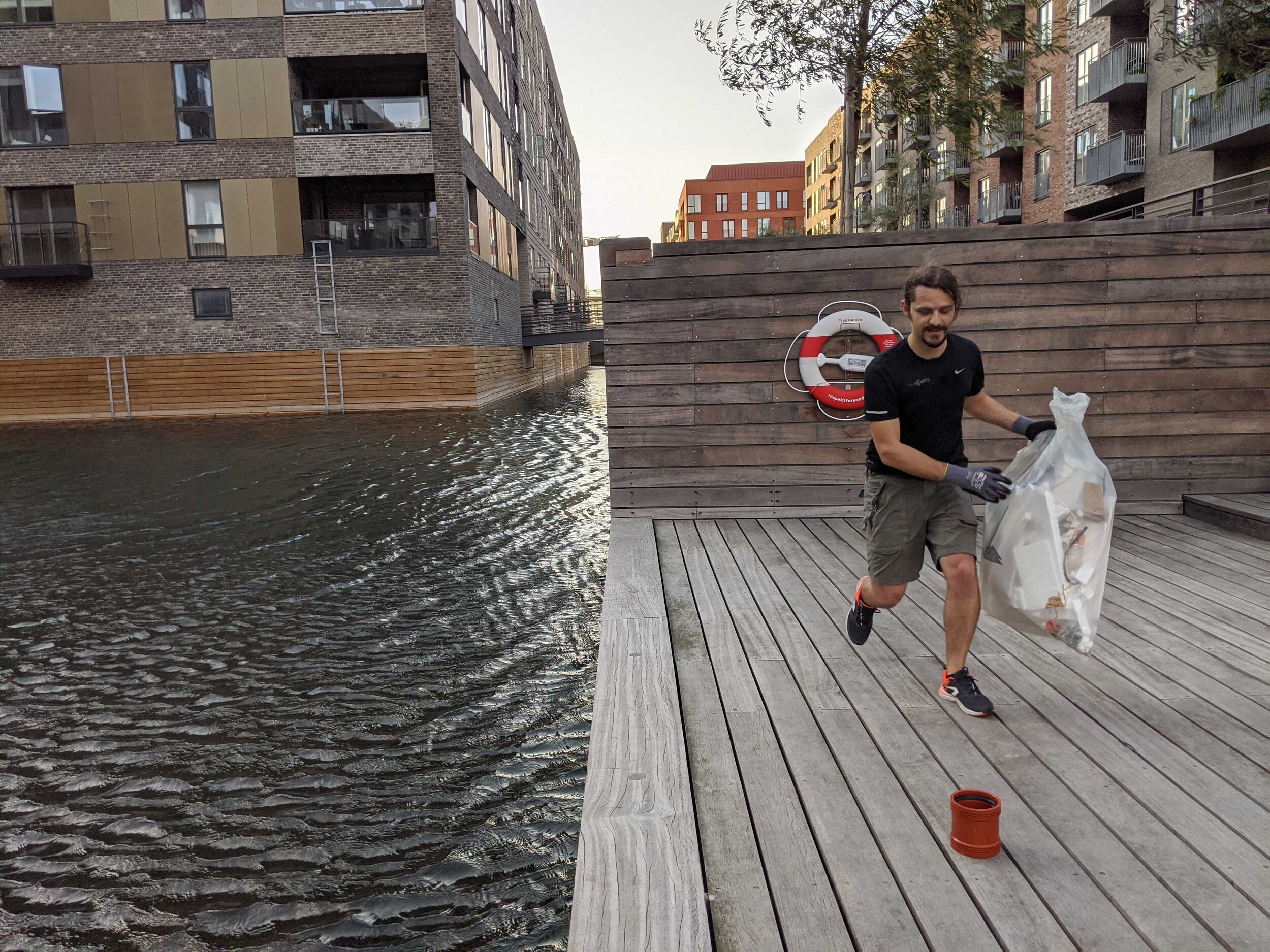
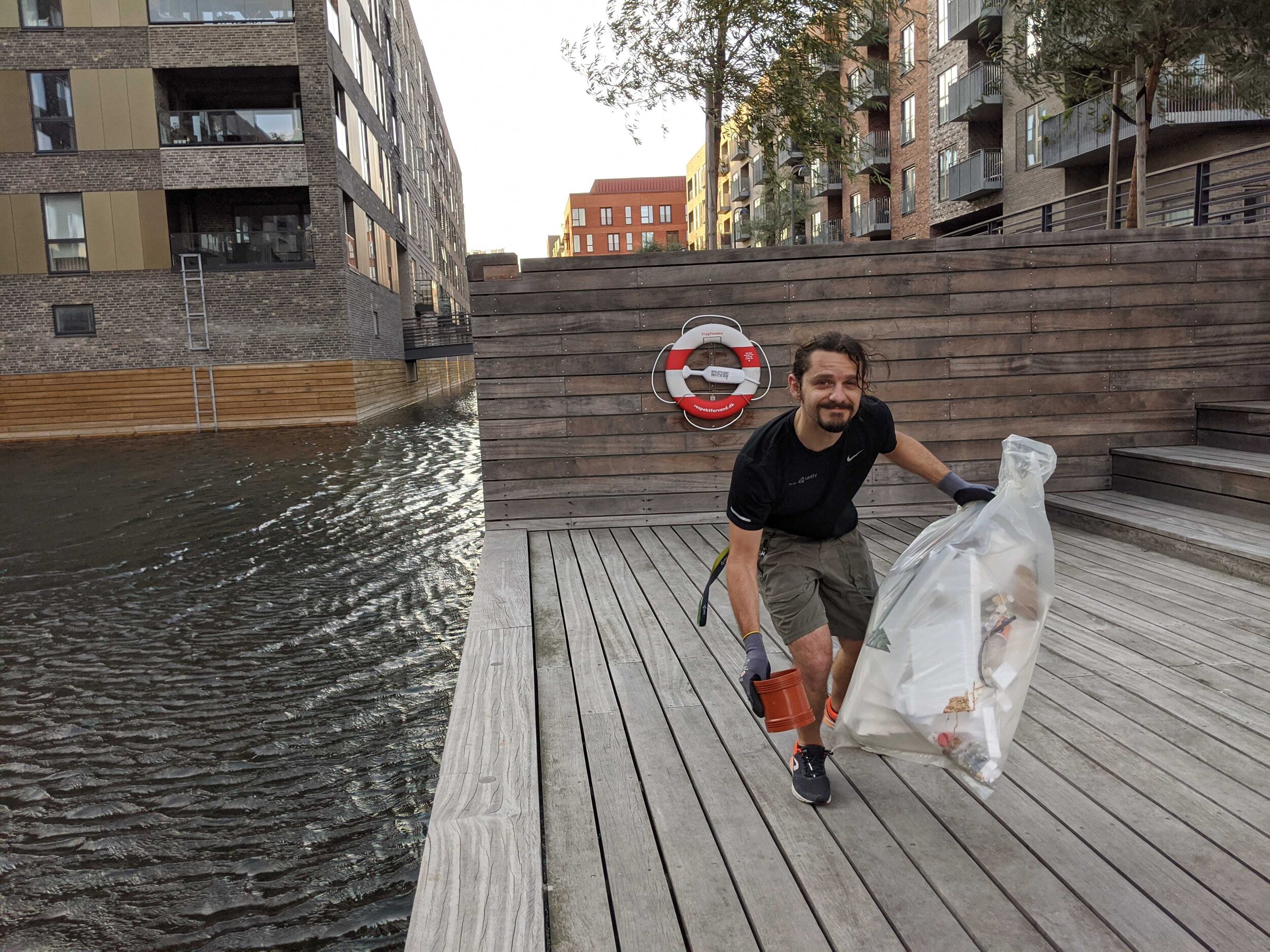
MORE THAN WATER
The ocean is home to large ecosystems, with which human life is interconnected. For many, it is a haven and a place to feel at home.
“I think the first time I really felt the problem physically, was when I visited my brother in Indonesia. We went to Bali and tried surfing, but the conditions were such that the trash in the sea was brought back to the shore. While out there, I remember constantly feeling something touching my leg. From time to time a plastic bag would surround my leg, looking like a giant jellyfish swimming around me.” Michael remembers.
“For a very long time, I regarded the ocean just as a holiday destination. I was aware of a lot of problems that I've learned from documentaries or from internet articles but it didn't even cross my mind I could do something about it. It was too far away and had other things to worry about. After moving here to Denmark my connection with the sea started getting stronger. But what I consider the breakthrough in my view was when I became a father. I was wondering what kind world am I leaving as a legacy for my kid if I don’t do everything in my power to change it, at least slightly”, explains Mihai.
CHALLENGES WITH SOLUTIONS
For Mihai and Michael, some of the most pressing challenges in saving our oceans are related to human activity - waste generated by people, that threatens ocean health and biodiversity.
“We created this problem ourselves when we synthesised plastic a little more than a hundred years ago. Plastic is part of our lives and it is not going away. It has helped many lives, it is a very versatile material, it is used in cars, shopping bags, our phones, etc. The problem is that it is also very resilient and it cannot be cheaply recycled - not to mention that its decomposition can take hundreds of years; it can get ingested by fish, birds or other animals. Not many people know that there are gigantic garbage patches the size of countries floating in our oceans.”
“The real question is, can we change the mindset of a whole population?” The wonderful highlight of this story, is how Mihai and Michael got a number of people in Sluseholmen - mostly residents like themselves or even bystanders - into creating a small community of ‘ploggers’. Mindsets certainly do not change overnight, but they eventually do, one inspired plogging neighbour at a time!
OUR HEROES’ HEROES
Reflecting on the situation in his homecountry, Mihai told us about the illegal deforestation issue in Romania, destroying the natural beauty of forests and endangering the biggest population of brown bears in Europe. From small to big actions, “anyone fighting the good fight - those people are the real heroes; [those] who do what they do because they believe in it and expect nothing in return.”
Michael and Mihai are thankful for the complexity of ocean ecosystems, as well as the ocean’s patience and kindness until we learn to appreciate how much we still need to do to protect it.
#Tavaha
To our Ocean Heroes, #Tavaha means living sustainably and leading a life where nature does not come in harm’s way. It reflects a need to acknowledge and preserve the diversity of life on this planet and the survival of our species. Their #tavahatips are:
Think about how you treat your local natural surroundings, which has an impact on our common global environment - start by taking care of your nearest waterstream, because that leads to the ocean;
Use the ocean - the more you use it, the more you will appreciate it;
Stop plastic pollution;
Reduce your CO2 emissions, as it contributes to ocean acidification which destroys marine life
DID YOU KNOW?
The word "plogging" comes from the combination of plocka (which in Swedish means pick up) and jogging. It started in 2016 in Sweden, and it is about running and picking up trash along the way.


